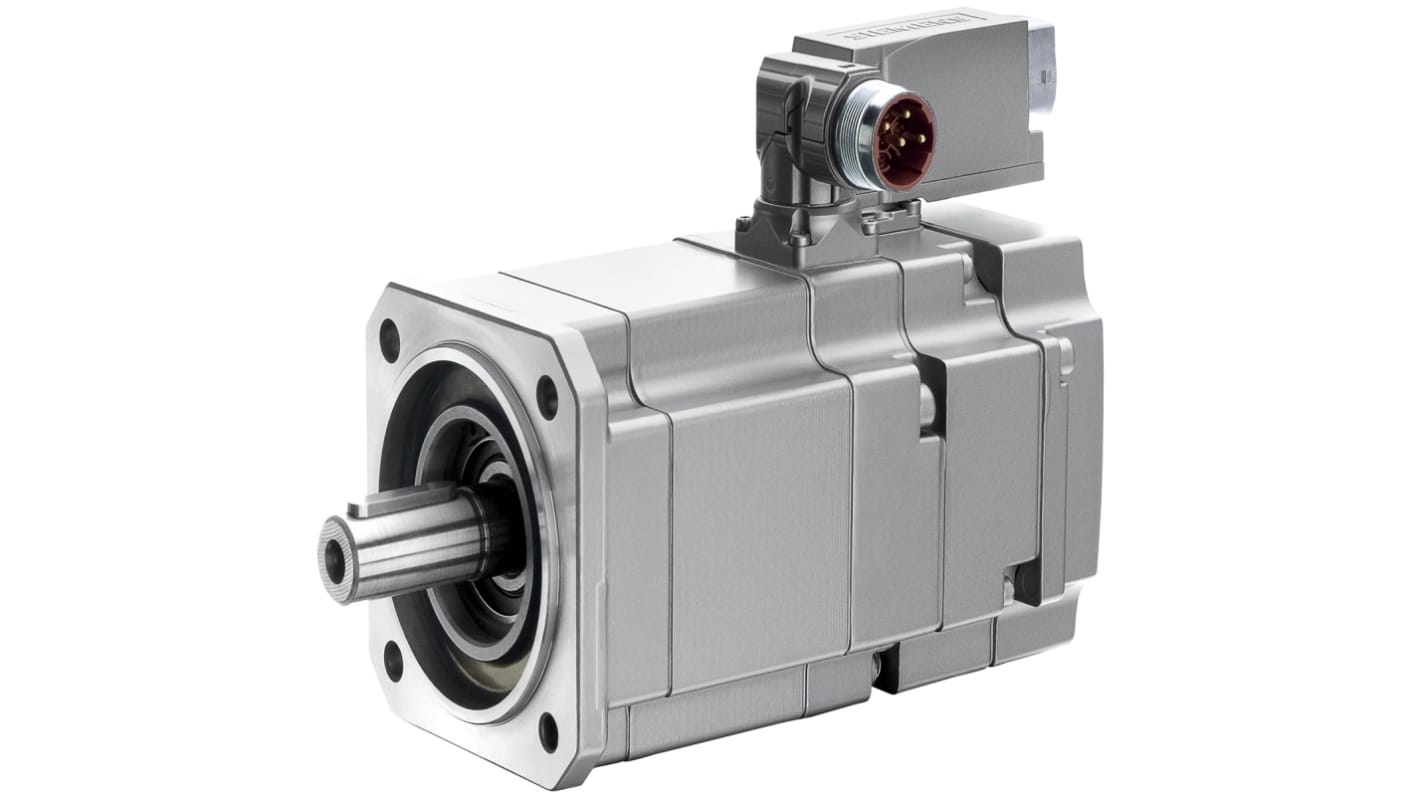Siemens 29 V 0.4 kW Servo Motor, 6000 rpm, 3.4 Nm Max Output Torque
- RS Stock No.:
- 280-4442
- Mfr. Part No.:
- 1FK7022-5AK71-1LG3
- Brand:
- Siemens

Subtotal (1 unit)*
£2,678.81
(exc. VAT)
£3,214.57
(inc. VAT)
FREE delivery for orders over £50.00
Temporarily out of stock
- Shipping from 16 December 2025
Need more? Click ‘Check delivery dates’ to find extra stock and lead times.
Units | Per unit |
|---|---|
| 1 + | £2,678.81 |
*price indicative
- RS Stock No.:
- 280-4442
- Mfr. Part No.:
- 1FK7022-5AK71-1LG3
- Brand:
- Siemens
Specifications
Technical Reference
Legislation and Compliance
Product Details
Find similar products by selecting one or more attributes.
Select all | Attribute | Value |
|---|---|---|
| Brand | Siemens | |
| Maximum Output Torque | 3.4 Nm | |
| Supply Voltage | 29 V | |
| Output Speed | 6000 rpm | |
| Power Rating | 0.4 kW | |
| Stall Torque | 0.85Nm | |
| Select all | ||
|---|---|---|
Brand Siemens | ||
Maximum Output Torque 3.4 Nm | ||
Supply Voltage 29 V | ||
Output Speed 6000 rpm | ||
Power Rating 0.4 kW | ||
Stall Torque 0.85Nm | ||
- COO (Country of Origin):
- RO
Siemens Servo Motor, 3.4Nm Maximum Output Torque, 29V Supply Voltage - 1FK7022-5AK71-1LG3
This servo motor is a compact solution well-suited for various industrial applications. With a maximum output torque of 3.4 Nm and a power rating of 0.4kW, it offers impressive performance and efficiency. Operating at a high output speed of 6000 rpm, this motor is designed for precision and reliability in demanding environments. Key design features include a rotor inertia of 0.280 kg.cm², making it an ideal choice for automation tasks that require quick responsiveness.
Features & Benefits
• High efficiency rating of 86.0% lowers operational costs
• Capable of delivering a stall torque of 0.85 Nm for robust performance
• Operating with a supply voltage of 29V ensures compatibility
• Low rotor inertia allows for rapid acceleration and deceleration
• Features natural cooling for enhanced durability and reduced maintenance
• Integrated encoder system provides accurate position feedback
• Capable of delivering a stall torque of 0.85 Nm for robust performance
• Operating with a supply voltage of 29V ensures compatibility
• Low rotor inertia allows for rapid acceleration and deceleration
• Features natural cooling for enhanced durability and reduced maintenance
• Integrated encoder system provides accurate position feedback
Applications
• Utilised in robotics for precise movement controls
• Effective in CNC machines for high-speed machining processes
• Suitable for conveyor systems requiring reliable torque
• Used in packaging equipment for demanding high acceleration
• Effective in CNC machines for high-speed machining processes
• Suitable for conveyor systems requiring reliable torque
• Used in packaging equipment for demanding high acceleration
What is the significance of the stall torque specifications for this motor?
The stall torque of 0.85 Nm indicates the maximum torque produced when the motor is stalled. This is crucial for applications that require starting under load, ensuring the motor can handle high initial resistance effectively.
How does the rotor inertia in servo motors affect performance?
A low rotor inertia of 0.280 kg.cm² facilitates quick changes in speed and direction, enabling smoother operation and higher responsiveness in dynamic applications.
What electrical characteristics should I consider when integrating this motor into a system?
The motor operates efficiently at a supply voltage of 29V and has a rated current of 1.4A, which are essential for compatibility with various control systems and drive units.
Related links
- Schneider Electric 480 V 1.3 kW Servo Motor 3.4 Nm Max Output Torque, 19mm Shaft Diameter
- Festo 680 V 310 W Servo Motor 3.4 Nm Max Output Torque
- Festo 325 V 310 W Servo Motor 3.4 Nm Max Output Torque
- Festo 680 V 350 W Servo Motor 3.4 Nm Max Output Torque
- Festo 680 V dc 350 W Servo Motor 3.4 Nm Max Output Torque, 14mm Shaft Diameter
- Festo 325 V dc 350 W Servo Motor 3.4 Nm Max Output Torque, 14mm Shaft Diameter
- Festo 325 V dc 310 W Servo Motor 3.4 Nm Max Output Torque, 14mm Shaft Diameter
- Omron 230 V 0.4 kW Servo Motor 1.3 Nm Max Output Torque
